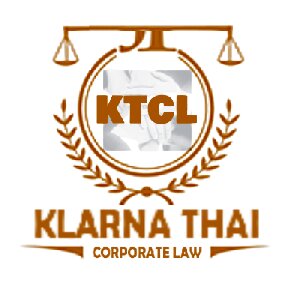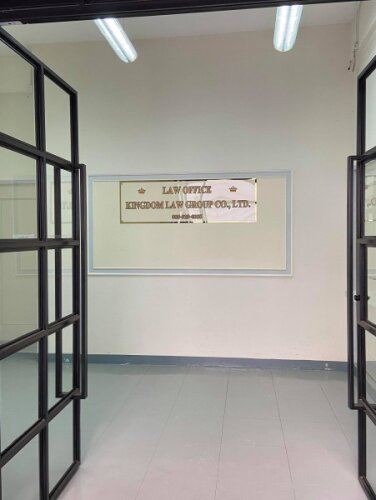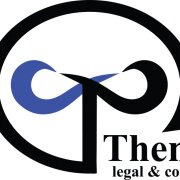Best Renewable & Alternative Energy Lawyers in Watthana
Share your needs with us, get contacted by law firms.
Free. Takes 2 min.
List of the best lawyers in Watthana, Thailand
About Renewable & Alternative Energy Law in Watthana, Thailand
Renewable and alternative energy laws in Watthana, Thailand, are evolving to support the country’s efforts to embrace cleaner, more sustainable energy sources. Watthana, as one of Bangkok’s most dynamic districts, often sees active investment and innovation in solar, wind, hydro, and bioenergy projects. These activities are guided by national and local regulations aimed at promoting renewable energy, ensuring environmental protection, and attracting both local and foreign investment. Legal frameworks address project development, licensing, incentives, grid access, and compliance with environmental and safety standards.
Why You May Need a Lawyer
Seeking legal advice in the area of renewable and alternative energy is essential when navigating this complex and highly regulated field. Common situations where a lawyer can provide invaluable guidance include:
- Starting a solar, wind, or other alternative energy project in Watthana
- Negotiating land use, leases, and permitting for energy installations
- Complying with environmental regulations and impact assessments
- Applying for government incentives and subsidies
- Drafting and reviewing contracts with equipment suppliers, energy buyers, or financiers
- Addressing disputes over energy project development or operation
- Securing intellectual property rights for renewable energy technology
- Facilitating grid interconnection and power purchase agreements with the Electricity Generating Authority of Thailand (EGAT) or Metropolitan Electricity Authority (MEA)
- Understanding compliance issues related to foreign investment in the energy sector
- Interpreting and adapting to frequently changing rules, policies, and incentives
Local Laws Overview
Renewable and alternative energy in Watthana is governed by a mix of national and local laws. Key aspects include:
- The Energy Industry Act and related statutes set out the framework for energy production, distribution, and licensing.
- Tax incentives and Feed-in Tariff (FiT) programs are available for renewable projects, subject to specific eligibility criteria.
- Environmental Impact Assessments (EIA) are often mandatory for significant energy projects, overseen by the Office of Natural Resources and Environmental Policy and Planning (ONEP).
- Building codes and urban planning regulations in Bangkok and Watthana may affect the installation of solar panels, small wind turbines, or other alternative systems.
- Power Purchase Agreements (PPA) are governed by contracts regulated by the main utility providers and relevant energy laws.
- The Board of Investment (BOI) offers incentives for qualifying renewable energy projects, including tax holidays and import duty exemptions.
- Licensing and safety standards are implemented by the Department of Alternative Energy Development and Efficiency (DEDE) and other authorities.
Frequently Asked Questions
What types of renewable energy projects are legal in Watthana, Thailand?
Most types, including solar, wind, biomass, biogas, and hydro energy systems are permitted, provided they comply with registration, zoning, and environmental requirements.
Do I need a permit to install solar panels on my property?
Yes, permits or approvals are usually required, especially for commercial-scale projects or grid-connected systems. Residential installations may have simplified processes but should still comply with local regulations.
Are there government incentives for renewable energy projects in Watthana?
Yes, Thai law offers various incentives such as tax benefits, Feed-in Tariff schemes, and investment privileges through the BOI, subject to specific qualifications.
What is a Power Purchase Agreement (PPA) and do I need one?
A PPA is a contract to sell electricity generated from your project to the grid or another buyer. It is essential for most commercial projects and often requires negotiation and regulatory approval.
Who regulates renewable energy in Watthana?
Regulation is shared by several agencies including the Energy Regulatory Commission (ERC), DEDE, BOI, and local administrative offices in Bangkok Metropolitan Administration.
Do I need an Environmental Impact Assessment (EIA)?
Many larger projects require an EIA as regulated by ONEP before construction begins, especially if they may have significant environmental effects.
Can foreigners invest in renewable energy projects in Watthana?
Yes, but there are restrictions. Foreign investors may need to comply with the Foreign Business Act and are encouraged to apply for incentives via the BOI.
What are the common challenges for renewable energy projects in Watthana?
Common obstacles include regulatory approvals, land acquisition, grid connection capacity, and understanding incentive eligibility.
How can disputes be resolved if issues arise in my renewable project?
Disputes are typically resolved through negotiation, mediation, or legal proceedings in Thai courts. Arbitration is also common for contractual disputes.
How do I stay updated on changes to renewable energy laws in Watthana?
By consulting with a specialized lawyer, subscribing to updates from government bodies, and regularly reviewing information published by Thai energy authorities.
Additional Resources
Several organizations and governmental bodies provide information and support for renewable and alternative energy law in Watthana, including:
- Department of Alternative Energy Development and Efficiency (DEDE)
- Energy Policy and Planning Office (EPPO)
- Board of Investment (BOI)
- Energy Regulatory Commission (ERC)
- Office of Natural Resources and Environmental Policy and Planning (ONEP)
- Bangkok Metropolitan Administration (BMA) for local zoning and permitting
- Thailand Greenhouse Gas Management Organization (Public Organization)
- Professional legal associations and renewable energy forums operating in Bangkok
Next Steps
If you require legal assistance in renewable and alternative energy matters in Watthana:
- Gather all relevant documents related to your project, such as contracts, permits, licenses, and correspondence with authorities.
- Identify your goals, concerns, and specific questions regarding laws and regulations.
- Seek out a lawyer or law firm with expertise in renewable and alternative energy in Thailand, particularly in Bangkok or Watthana.
- Arrange a consultation to discuss your project and clarify the steps needed for compliance, dispute resolution, or investment facilitation.
- Stay proactive by following updates from regulatory agencies and maintaining open communication with your legal advisor.
By taking these steps, you can protect your interests, ensure regulatory compliance, and maximize opportunities in Watthana’s growing renewable and alternative energy sector.
Lawzana helps you find the best lawyers and law firms in Watthana through a curated and pre-screened list of qualified legal professionals. Our platform offers rankings and detailed profiles of attorneys and law firms, allowing you to compare based on practice areas, including Renewable & Alternative Energy, experience, and client feedback.
Each profile includes a description of the firm's areas of practice, client reviews, team members and partners, year of establishment, spoken languages, office locations, contact information, social media presence, and any published articles or resources. Most firms on our platform speak English and are experienced in both local and international legal matters.
Get a quote from top-rated law firms in Watthana, Thailand — quickly, securely, and without unnecessary hassle.
Disclaimer:
The information provided on this page is for general informational purposes only and does not constitute legal advice. While we strive to ensure the accuracy and relevance of the content, legal information may change over time, and interpretations of the law can vary. You should always consult with a qualified legal professional for advice specific to your situation.
We disclaim all liability for actions taken or not taken based on the content of this page. If you believe any information is incorrect or outdated, please contact us, and we will review and update it where appropriate.















